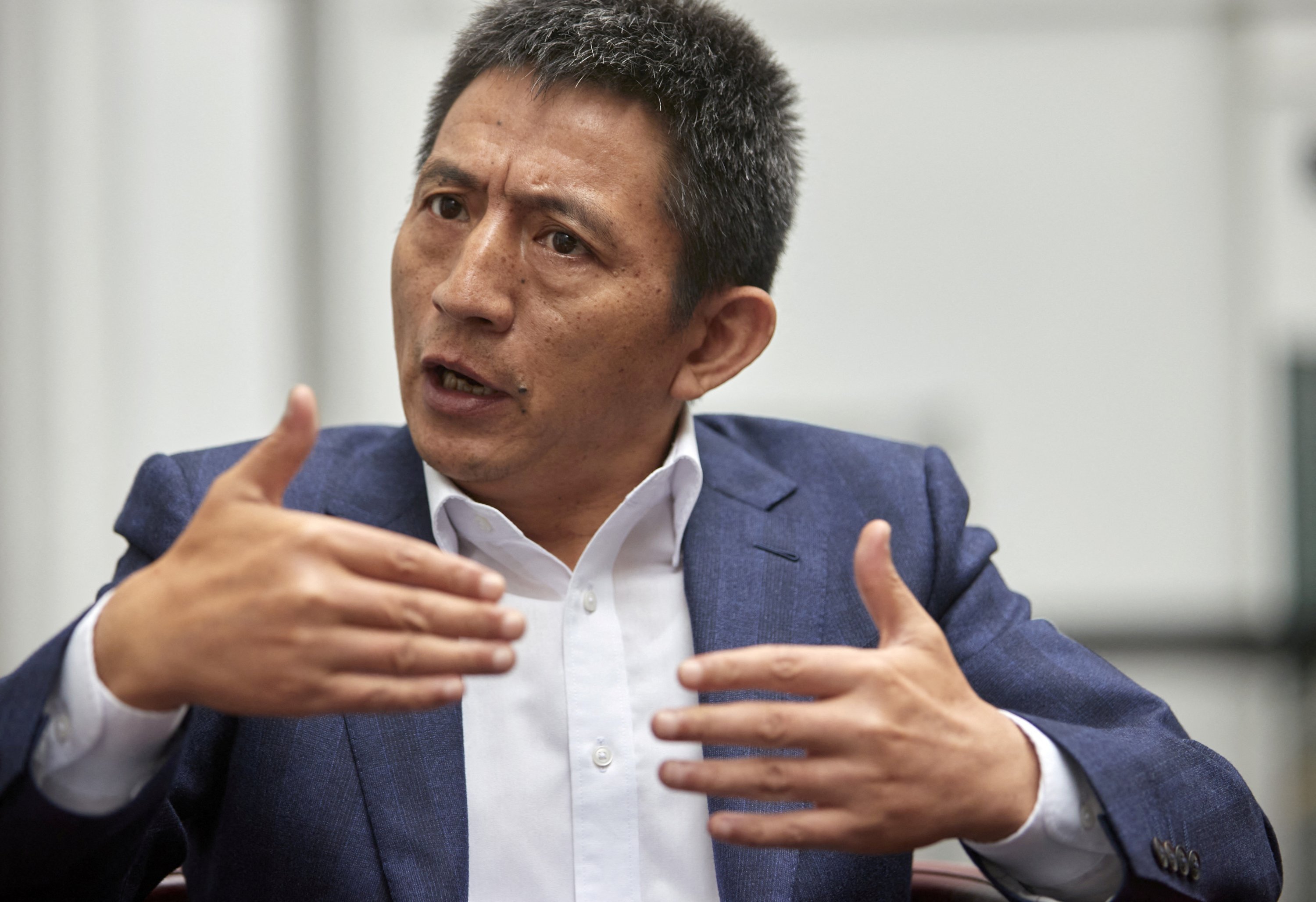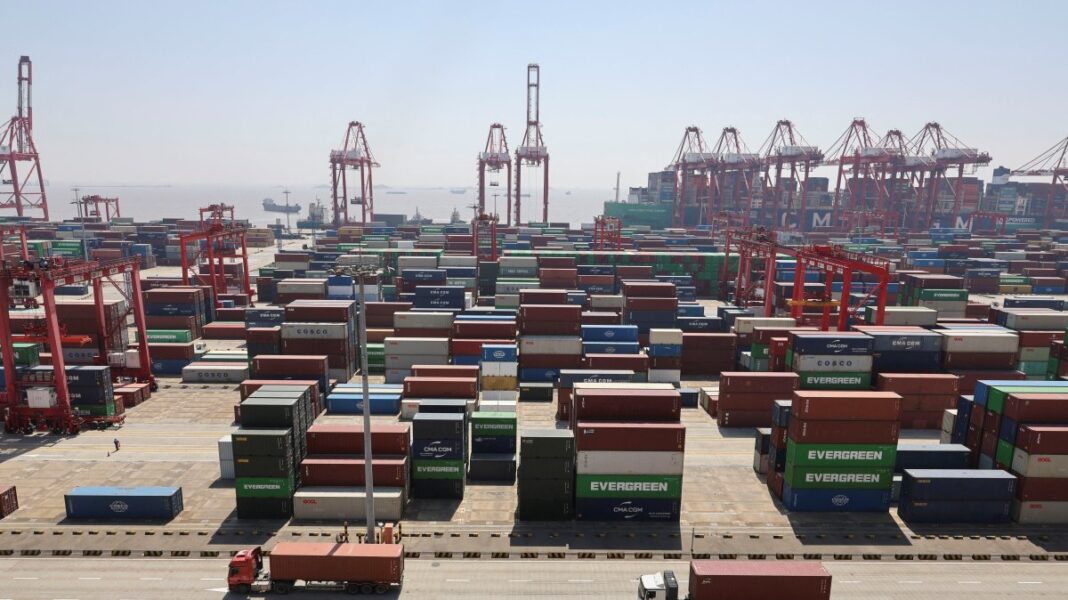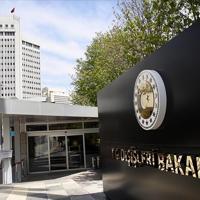China warned Wednesday it was “not afraid” to fight a trade war with the United States as it unexpectedly appointed a new trade negotiator key in any talks to resolve the escalating tariff conflict after President Donald Trump said it was up to Beijing to come to the negotiating table.
China replaced trade czar Wang Shouwen with its envoy to the World Trade Organization (WTO), Li Chenggang, who is a former assistant Commerce minister during the first administration of Trump, the Human Resources and Social Security Ministry said in a statement.
Wang was regarded as a tough negotiator and had clashed with U.S. officials in previous meetings, said a source in Beijing’s foreign business community. He participated in negotiations for the 2020 trade deal between China and the U.S.
“He’s a bulldog, very intense,” said the source, declining to be named.
The shift within the top leadership at the Commerce Ministry comes as Beijing pursues a hardline stance in an intensifying trade war with Washington, which economists warn could cause a global recession.
Trump has slapped new tariffs on friend and foe, but has reserved his heaviest blows for China, with 145% on many Chinese imports, even as Beijing has retaliated with levies on U.S. goods of 125%.
China told Washington on Wednesday to “stop threatening and blackmailing” after Trump said it was up to Beijing to come to the negotiating table to discuss ending their trade war.
“If the U.S. really wants to resolve the issue through dialogue and negotiation, it should stop exerting extreme pressure, stop threatening and blackmailing, and talk to China on the basis of equality, respect and mutual benefit,” Foreign Ministry spokesman Lin Jian said.
“China’s position has been very clear. There is no winner in a tariff war or a trade war,” Lin said. “China does not want to fight, but it is not afraid to fight.”
Earlier on Wednesday, China announced its economy expanded at a 5.4% annual pace in January-March, supported by strong exports. Analysts are forecasting that the world’s second-largest economy will slow significantly in the coming months, however, as tariffs on U.S. imports from China take effect.
Exports were a strong factor in China’s 5% annual growth rate in 2024, and the official target for this year is also about 5%.
Ball in China’s court
The abrupt change at the commerce ministry also took place in the middle of President Xi Jinping’s tour of Southeast Asia to consolidate economic and trading ties with close neighbors amid the standoff with the U.S.
Trump has described Xi in admiring terms, but neither man has backed down.
It wasn’t clear why China was changing negotiators, but the move comes as Chinese officials say the country has multiple options to respond to U.S. actions, including relying more on its own vast market of 1.4 billion consumers, and on Europe and countries in the Global South. But as China’s domestic consumption continues to languish, it will be difficult to replace the U.S. consumer.
It was also unclear if Wang, who assumed the No. 2 role at the Commerce Ministry in 2022, had taken up a post elsewhere. His name was no longer on the ministry’s leadership team, according to the ministry’s website as of Wednesday.
Commerce Minister Wang Wentao was among senior officials flanking Xi on his visit to Vietnam, Malaysia and Cambodia this week.
Alfredo Montufar-Helu, a senior adviser to the Conference Board’s China Center said the change was “very abrupt and potentially disruptive” given how quickly trade tensions had escalated and in light of Wang’s experience negotiating with the U.S. since the first Trump administration.
“We can only speculate as to why this happened at this precise moment; but it might be that in the view of China’s top leadership, given how tensions have continued escalating, they need someone else to break the impasse in which both countries find themselves and finally start negotiating,” he said.

Trump has said he expects something positive to come out of the trade tensions between the world’s two largest economies. But, unlike multiple other nations who have responded to his plans for tariffs by seeking deals with Washington, Beijing has raised its own levies on U.S. goods and not sought talks, which it says can only be conducted on the basis of mutual respect and equality.
Washington said on Tuesday that Trump was open to making a trade deal with China, but it was up to Beijing to make the first move toward ending the dispute, insisting that China needed “our money.”
“The ball is in China’s court. China needs to make a deal with us. We don’t have to make a deal with them,” claimed a statement from Trump read out by Press Secretary Karoline Leavitt.
“China wants what we have … the American consumer, or to put another way, they need our money,” Leavitt asserted.
Complex legal issues
Li, who was China’s ambassador to the WTO for more than four years, previously held several key jobs in the Commerce Ministry, such as in departments overseeing treaties and law and fair trade. He also has an academic background from the elite Peking University and Germany’s Hamburg University.
On March 31, Li attended a Chinese private entrepreneurs forum as a “leader” of the Commerce Ministry, according to a state media readout of the meeting, one of the first official hints of an impending move to a new role.
“It seems like a routine promotion with nothing abnormal, but now is obviously a sensitive period due to U.S.-China tensions,” said Alfred Wu, associate professor at the National University of Singapore.
At a February WTO meeting in Geneva, Li slammed the U.S. for arbitrarily imposing tariffs on its trading partners, including China.
Last week, China filed a new complaint with the WTO expressing “grave concern” over U.S. tariffs, accusing Washington of violating WTO rules.
“Li is a lawyer by training, which positions him better than Wang Shouwen to handle the complex legal issues that are emerging in the current negotiations,” said Henry Gao, professor of law at Singapore Management University.
“This change indicates that China is prepared to address legal matters more comprehensively in this round of talks. If anything, this shift demonstrates China’s willingness to delve into legal intricacies during negotiations, suggesting a strategic approach to resolving the ongoing trade war.”





